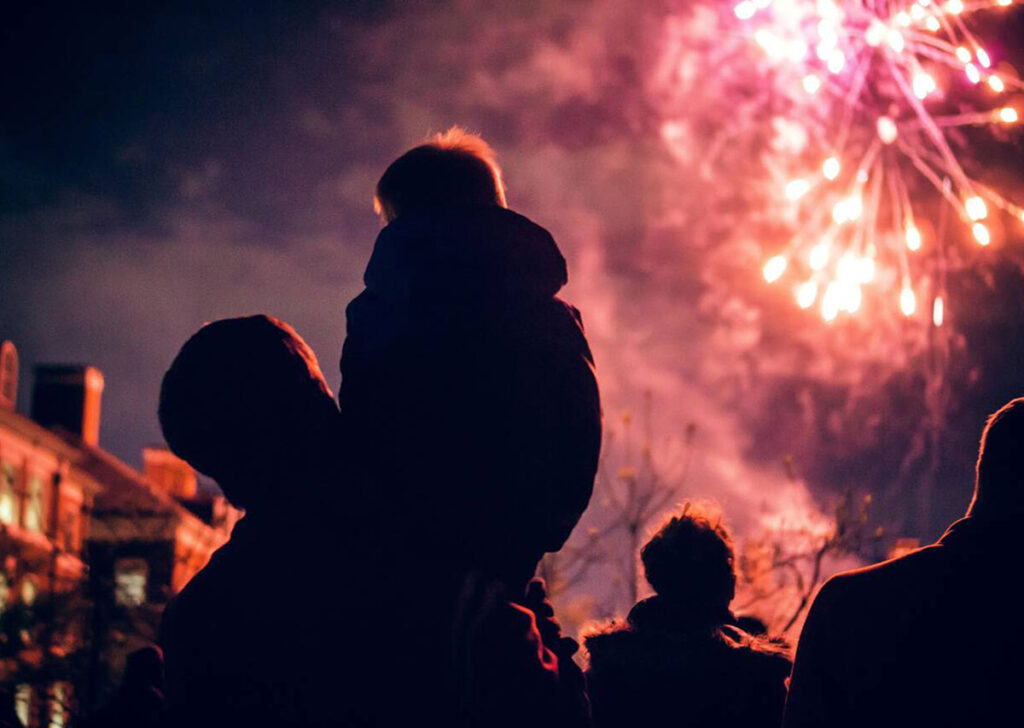Celebrating with fireworks? Don’t forget to protect your ears!
Fireworks are loud and can permanently damage your hearing. Read on to find out how you can protect your hearing.

What is it about fireworks that makes us feel a celebration seems incomplete without them? Weddings, New Year, sporting events … we want to light up the sky, and especially this next month for Guy Fawke’s Night (5 November) and Diwali (12 November)
But why are we saying look after your ears when at a display?
Fireworks are, basically, small explosives using chemical reactions to generate light and noise.
This means some of them can be quite loud. How loud they are, however, depends on a number of factors.
In the UK, fireworks fall into four categories roughly based on explosive power, and the public cannot buy the bigger and louder fireworks. Some fireworks are made for their display properties, – the oooh and aaah factor – while others are designed to boom and bang.
Handling fireworks safely has been well covered in public health campaigns, but less emphasis has been placed on the risks to hearing health from loud fireworks.
Let’s take a look at some of the science behind the sound.
What makes fireworks loud?
The chemical reactions inside a lit firework lead to a build-up of heat and gas. These cause an explosion that creates a blast wave because of the release of a large amount of energy in a small space. This wave creates an area of very high pressure, causing compressed air particles to travel faster than the speed of sound – which creates the bang.
The bigger the explosion, the higher the pressure and the louder the sound, as the power of a sound is proportional to the pressure squared.
How is sound measured?
Decibels (dB) are used to measure how loud a particular sound is. Experts agree that hearing loss can occur at just 85dB, depending on the length of exposure.
For full details on sound levels see How loud is loud?
How loud are fireworks?
Fireworks in commercial displays are often over 150dB and sometimes as much as 175dB. These can only be sold to fireworks professionals, as the public cannot buy fireworks of louder than 120dB at 15 metres.
However, as commercial fireworks can reach much higher into the sky than those used at home, their sound can be weaker to observers on the ground. Fireworks sold to the public usually explode much closer to the ground and although they have a lower maximum decibel level, they can actually sound louder.
Hearing safety around fireworks
Standing as far back as possible from fireworks is recommended to minimise risk. Children should be positioned safely too.
The World Health Organization recommends that children should be exposed to no more than 120dB, which may be difficult to achieve in a small garden, and so over-ear hearing protection is strongly recommended, or consider not letting off loud fireworks.
At 120dB, the safe exposure limit to sound is less than 10 seconds, so setting off a few fireworks over the course of an evening in your garden could indeed cause hearing damage or trigger tinnitus. Hearing protection will reduce your exposure to loud noise, and still enable you to have a fun and exciting firework display.
Save me a sparkler!
